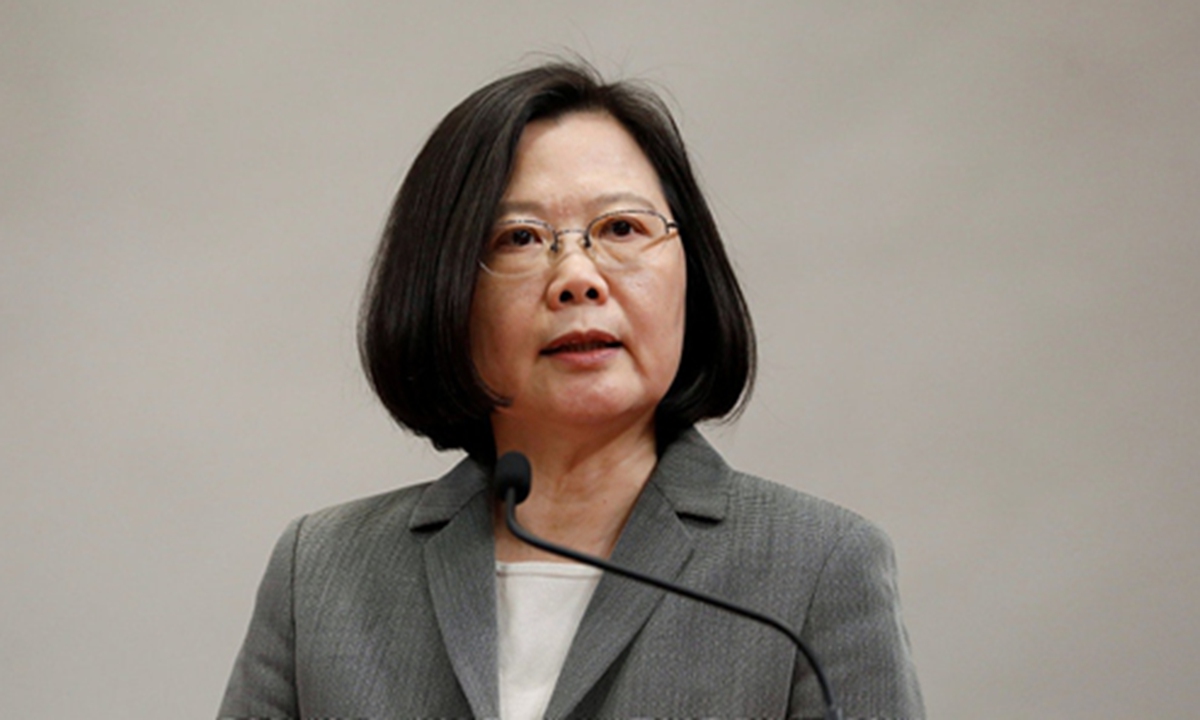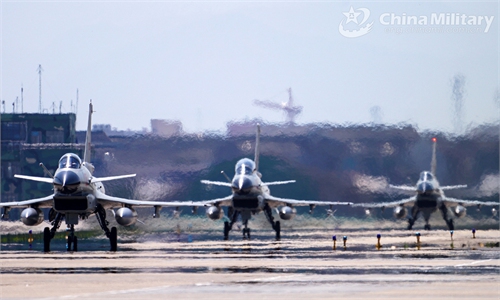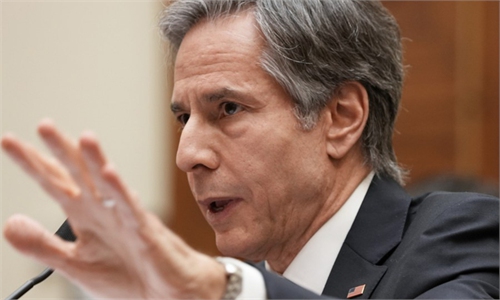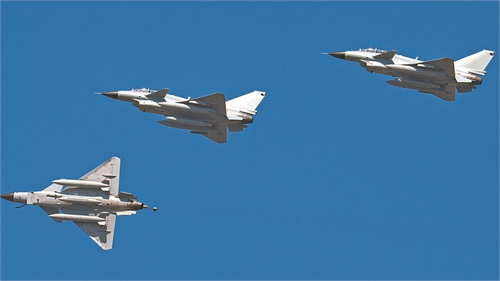A clearer commitment to Taiwan would risk strategic miscalculation for Washington

Tsai Ing-wen Photo:VCG
The situation around the Taiwan Straits has kept escalating. Within the US strategic circle, the debate of whether the US should abandon its decades-long policy of "strategic ambiguity" is going on. According to the US media, some advisors are calling for the US to make a clearer commitment to Taiwan's defense.If "a clearer commitment" means that the US makes a clear-cut commitment to defend Taiwan if a war breaks out, the answer should be no. No matter in terms of law or policy, the US is unlikely to make an explicit commitment to Taiwan. Even during the Trump era when relations between the island of Taiwan and the US reached an unprecedented high, the US administration did not offer support with such a commitment.
In April 2001, then US president George W. Bush said he would do "whatever it takes" to defend Taiwan from any attack by the mainland. Although no other president has made such an explicit commitment, Bush said he did not consider his comments a change in policy. He also said declaration of independence by Taiwan "is not part of the one-China policy."
One of the groups who advocate for a clearer commitment to Taiwan's defense are values-oriented - they promote so-called democracy and freedom and are sternly anti-communist. The other group constitutes of individuals who take money from Taiwan authorities. When the Taiwan Travel Act was proposed, it was jointly supported by senators from Florida, and Taiwan made a $3 million donation to the US following Hurricane Katrina in 2005 which badly hit Florida.
The ones who oppose a clear-cut commitment to Taiwan are those who have deep knowledge of China-US relations and the Taiwan question. They understand the tough and firm stance of the Chinese government on Taiwan question. They also know that if the US crosses the line, China is bound to respond in a tough manner. Therefore, they oppose such a commitment for the sake of US interests.
The US will continue to play the Taiwan card with its "salami-slicing" tactics. In late March, the US and Taiwan signed a memorandum of understanding to establish a coast guard working group with the common objective of preserving maritime resources and participating in joint maritime search and rescue. This may be used by the US as another chance to make provocations; for instance, the vessels of the US coast guard can dock at Taiwan's ports.
For those who advocate for a clear commitment to Taiwan, they believe by doing so, the US can reduce the risk of a miscalculation by the mainland that could lead to an unwanted war. But this is a miscalculation by the US - if the US does so, China is bound to take countermeasures.
The thinking between the US and China is different: If the US wants to prevent war, it will launch a war first. But for China, war is the final option.
Will Washington make a clear commitment to Taiwan? If it does, it will only encourage risky behavior from Taiwan and it means the US will be attached to a war chariot, a situation the US will never allow to happen. How important is Taiwan to the US? It is important, but it can be abandoned at any time.
The official US stance is proven by the remarks of US Secretary of State Antony Blinken. When asked on Sunday if the US would respond militarily to Chinese action over Taiwan, Blinken declined to comment on a hypothetical.
"All I can tell you is we have a serious commitment to Taiwan being able to defend itself," he said. "We have a serious commitment to peace and security in the western Pacific. We stand behind those commitments. And in that context, it would be a serious mistake for anyone to try to change that status quo by force."
Compared with the Trump era, the Biden administration is savvy. At the end of Trump's tenure, the planned trip of US Ambassador to the UN Kelly Craft to Taiwan was called off by the US State Department at the last minute. But recently, the US sent its Palau ambassador to join the Palau president's Taiwan visit. The Biden administration has achieved what the previous administration did not by sending an envoy to visit Taiwan, and the envoy went as a member, not a leader, of a team.
The US should draw lessons from history. In the 1950s, the US took China's warning of not crossing the 38th parallel as bravado and believed China did not have enough national and military strength for war. It was such a strategic miscalculation by the US that forced it to taste the strength of Chinese army.
The US should also take note from the 1962 Cuban missile crisis, in which the confrontation between the US and the Soviet Union almost escalated into an all-out nuclear war. It was after this incident that the US established a hotline with the Kremlin to facilitate communication between the two leaderships. At a time when China and the US have little strategic mutual trust in areas such as Taiwan and one side does not clearly know where the bottom line of other side is, the US strengthening its presence in Taiwan is a dangerous thing. Without an effective conflict management mechanism between China and the US in the Taiwan Straits, it is the US that should avoid strategic miscalculation.
The author is an associate research fellow at the Institute of Taiwan Studies, Chinese Academy of Social Sciences. opinion@globaltimes.com.cn




